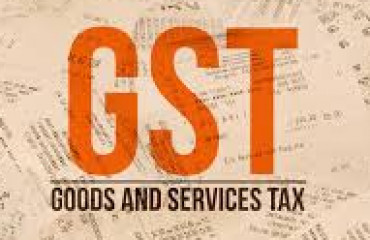
India's liquor regulations have been complex for long. But GST and states' need to shore up revenue is beginning to change that
In what now seems like a blatant act of sexism, Bertie was allotted automobile, cigarette and alcohol companies in his first job as an investment analyst, while his lady colleague took charge of consumer staples and retailers. Bertie had to struggle through the labyrinth of liquor regulation that changed with every state, but his colleague quickly mastered the regulatory architecture of selling soaps. On top of that, he had to answer questions from his seniors about how many bottles of what alcohol should they bring back from Goa in order to maximise their personal return on company travel; something he was sure wasn't asked being about soaps or hair oil.
But the hard work seemed to have paid off when in a recent meeting with an alcohol company, the CFO complimented Bertie's understanding of the sector. "Purane bevde lagte ho aap" (You seem to be a seasoned drunkard)," he had said, pleasing Bertie. The CFO then highlighted the trend of easing liquor regulations with Uttar Pradesh (UP) being the poster boy of change. Bertie later looked up the numbers and was surprised to find that excise revenue from liquor had grown threefold within seven years.
Also read | Markets with Bertie: Nowhere to hide
That liquor regulation would remain complicated due to multiple vested interests was a reality that Bertie had resigned to, and so this change for the better intrigued him. The CFO explained the chain of events that had led to the shift. It began with the implementation of GST, after which, states could charge excise only on alcohol, fuel and real estate sales. Everything else was subsumed within the net of the new tax and that meant that apart from these exceptions, all other state revenue was handed down to them by the Centre with strict checks and balances. Over the last couple of years, many states, in a bid to boost their electoral chances, have launched welfare schemes which have to be funded from the state's own revenue. "That's the genesis of this trend," said the CFO.
If states want to fund such schemes, their own revenues have to be bolstered, and, in that quest, liquor tax is the low-hanging fruit as UP has shown. "Electoral compulsions trump all individual vested interests," he concluded. Bertie was letting this butterfly effect sink in when the CFO chuckled and said, "You guys get worried when a welfare scheme gets launched. We rejoice."
Does macro matter?
Last Saturday, Bertie found himself at the Mint India investment summit. When he was handed his name tag at the registration desk, Bertie felt a strong urge to scratch his given name and replace it with Bertie. But he recalled the permanent scowl on his compliance officer's face and that was enough to dissuade such recklessness. He also toyed with the idea of writing 'Lady Whistledown' on his badge, hoping that Bridgerton aficionados would make the connection, but then he remembered that the crowd he was about to mingle with were self-absorbed, moneyed people who would miss the subtlety.
A somewhat glum Bertie entered the conference hall and caught the eye of the only editor at Mint, who is officially aware of Bertie's identity. The situation, he thought, was quite similar to the movie Don, where only the deputy superintendent of police, played by the inimitable Iftekhar, knows that the pan-chomping Amitabh Bachchan is not the real Don. Bertie discretely nodded at his editor and settled down to hear the two outspoken public market veterans in a fireside chat.
Also read | On the defensive: double squeeze for consumer staples firms
The gentleman on the dais is a Buffett devotee who can quote him and Munger at will. On cue, a few minutes into the talk, he urged listeners to buy shares in a company only if they were willing to own the business in its entirety. Normally, this exhortation is followed by the famous quote, "Only buy something that you'd be perfectly happy to hold if the market shuts down for ten years", and Bertie was waiting for it. But the script changed abruptly as the lady on the panel interjected. "But Buffett himself does not do that." Bertie could almost hear a collective gasp from the assembled Buffett devotees.
"Berkshire sells 90% of the stocks they own within two years and 75% within ten months," she said calmly. Knowing that it was dark enough in the hall, Bertie allowed himself a smile. As the conversation wore on, the moderator asked about the falling share of manufacturing in India's GDP despite all the state push it was receiving. The gentleman dismissed this with a wave of the hand, arguing that GDP always added up to a hundred, and if something was losing share, something else was gaining and investors should focus on those areas.
Dismissing macroeconomic trends as unimportant for investing finds its roots in the Buffett-Munger school of thinking as well. This debate about whether macro matters is possibly as old as investing itself, but Bertie was fortunate enough to have been told a cricketing analogy by his mentor to think about this. "The macro is the pitch that you bat on. Yes, you have to make runs and not get out—that's the bottom-up stock-picking part. But how you bat, how fast, where do you score runs and against whom—the pitch plays a big role in deciding that". While the debate may continue, Bertie thinks of the importance of macro in the form of a bell curve. It does not matter for very short or very long investing horizons; but for everything in the middle, the pitch cannot be ignored.
Bertie is a Mumbai-based fund manager whose compliance department wishes him to cough twice before speaking and then decide not to say it after all.
